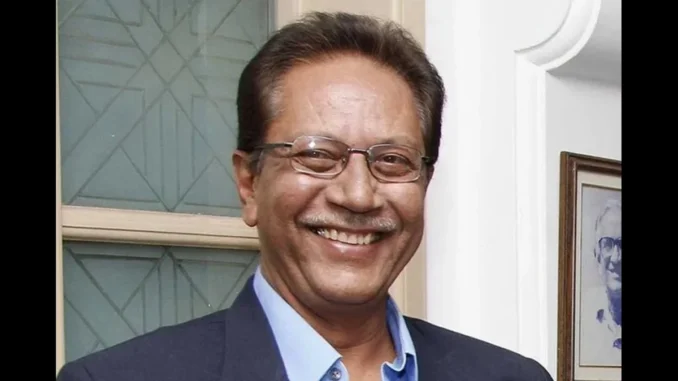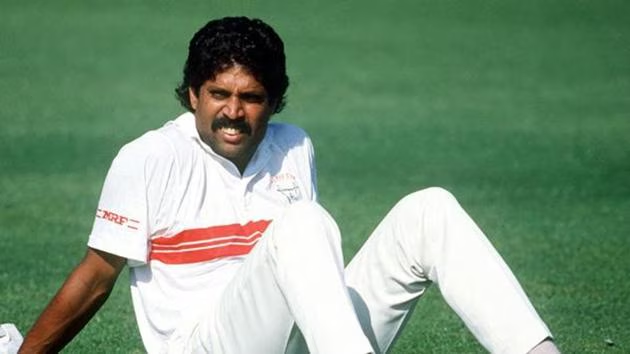
Anshuman Dattajirao Gaekwad was a dedicated leader and stalwart in Indian cricket. His journey from player to coach showcases triumph, resilience, and commitment. This article explores his background, career, personal life, and legacy.
Background
Anshuman Gaekwad, born on September 23, 1952, in Mumbai, India, hailed from a family with a rich cricketing heritage. His father, Datta Gaekwad, was also a Test cricketer for India, laying the foundation for Anshuman’s eventual foray into the sport. Growing up in a cricket-centric environment, it was almost inevitable that Anshuman would follow in his father’s footsteps. His early exposure to the game played a pivotal role in shaping his career and passion for cricket.
Education
Anshuman Gaekwad attended school in Mumbai, where he balanced his academic pursuits with his growing interest in cricket. His education laid the groundwork for the disciplined approach to the game that would become a hallmark of his career. He also studied at the Convent of Jesus and Mary and Maharani Chimnabai High School in Vadodara.
Age
Born in September 23, 1952, As of 2024, he would have been 71 years old.
Read Also: Kelly Ortberg Biography: Background, Edaucation, Age, Career Life, Legacy, and Tribute
Cricketing Career
Anshuman Gaekwad’s cricketing career is a testament to his skill, determination, and resilience. He made his debut for India in 1975, playing against England in an ODI. Over the next decade, he played in 40 Test matches and 15 ODIs, establishing himself as a reliable right-handed batsman and a right-arm off-break bowler. Gaekwad was known for his solid defense and calm demeanor on the field, earning him the nickname “The Great Wall.”
Test Matches
Gaekwad’s Test career was marked by several notable performances. He played his last Test match on December 31, 1984, against England. His ability to anchor the innings and play long, patient knocks made him a valuable asset to the Indian team. One of his most memorable performances was his innings of 201 runs against Pakistan in 1983, a knock that exemplified his grit and determination.
One Day Internationals (ODIs)
In ODIs, Gaekwad was a dependable middle-order batsman. Although his ODI career was shorter, spanning just 15 matches, he made significant contributions whenever he got the opportunity. His last ODI appearance was on December 23, 1987, against the West Indies. Despite the limited number of matches, Gaekwad’s impact was felt, particularly in games where his experience and calmness under pressure were crucial.
Coaching Career
After retiring from active cricket, Anshuman Gaekwad transitioned into coaching, where he continued to influence the game. He served as the head coach of the Indian national team twice, with his most notable tenure being during the late 1990s and early 2000s. Under his guidance, India reached the finals of the 2000 ICC Champions Trophy, an achievement that underscored his strategic acumen and leadership skills.
Family and Personal Life
Anshuman Gaekwad’s life extended beyond the cricket field. As a family man deeply rooted in his values and traditions, he married Jyoti Gaekwad and had two sons, Aniruddha Gaekwad and Shatrunjay Gaekwad, who also became a cricketer. The Gaekwad family maintained a strong connection to the sport across generations, embracing cricket as more than just a profession but as a way of life. He was known for his love of reading and his keen interest in history.
Awards and Achievements
Anshuman Gaekwad was recognized as one of India’s top cricketers, earning the Cricketer of the Year award for his consistent performances. He received numerous awards throughout his career, highlighting his significant contributions to Indian cricket. Notably, in June 2018, he was honored with the C. K. Nayudu Lifetime Achievement Award, the highest honor conferred by the BCCI on a former player. One of the pinnacles of his coaching career was leading the Indian team to a runner-up finish at the 2000 ICC Champions Trophy, which brought him widespread acclaim.
Health Struggles
In his later years, Anshuman Gaekwad faced health challenges, most notably his battle with blood cancer. Despite his illness, he remained resilient and continued to be involved in cricket in various capacities. His health struggles were a reminder of his indomitable spirit, a trait that had defined his life and career.
Legacy
Anshuman Gaekwad’s legacy extends far beyond his statistics as a cricketer. He was a mentor, a guide, and a figure who shaped the future of Indian cricket. He impacted the game by coaching and mentoring many players who went on to achieve great success in their careers.
Death and Tributes
Anshuman Gaekwad passed away at the age of 71, following a prolonged battle with blood cancer. His death marked the end of an era in Indian cricket, but his legacy lives on. Tributes poured in from across the cricketing world, with former players, colleagues, and fans remembering him as a true gentleman of the game.
Frequently Asked Questions (FAQs)
1. What was Anshuman Gaekwad’s highest score in Test cricket?
Anshuman Gaekwad’s highest score in Test cricket was 201 runs, achieved against Pakistan in 1983.
2. Did Anshuman Gaekwad have any children?
Yes, Anshuman Gaekwad had a son named Shatrunjay Gaekwad, who also pursued a career in cricket.
3. What were some of Anshuman Gaekwad’s coaching achievements?
One of Anshuman Gaekwad’s significant coaching achievements was leading the Indian team to the finals of the 2000 ICC Champions Trophy.
4. How old was Anshuman Gaekwad when he passed away?
Anshuman Gaekwad was 71 years old at the time of his death.
5. What legacy did Anshuman Gaekwad leave behind in Indian cricket?
Anshuman Gaekwad left behind a legacy of dedication, discipline, and mentorship, influencing future generations of cricketers in India.
Conclusion
Anshuman Gaekwad’s life and career were a testament to his love for cricket. His contributions as a player, coach, and mentor have left an indelible mark on the game, making him a revered figure in the history of Indian cricket. His legacy continues to inspire, reminding us of the values of dedication, resilience, and passion for the sport.

Leave a Reply